Mount Lawley Teachers’ college staff experience would be incomplete without a mention of the executive and support staff, who were responsible for all the behind scenes work.
Executive Staff
Bob Peter - Head
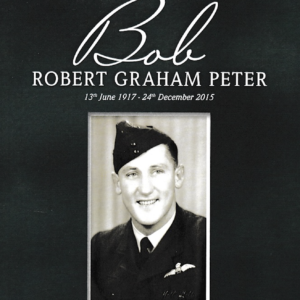 Bob Peter was set on a path for teacher education reform, using modern learning experiences and eliminating outdated practices. Academic autonomy was encouraged in the areas of teaching; designing courses; and assessing the effectiveness of the teaching.
Bob Peter was set on a path for teacher education reform, using modern learning experiences and eliminating outdated practices. Academic autonomy was encouraged in the areas of teaching; designing courses; and assessing the effectiveness of the teaching.
Bob Peter’s agenda addressed a number of problems with the traditional method of teacher training which included: the lack of college autonomy, the lack of appropriate criteria to predict teaching success, the relevance of academic courses to classroom practice, inefficient mass instructional methods with an overloaded curriculum, poor administrative procedures, and the possibility of failure to achieve the prime objective of turning out capable school teachers by the end of their training.
Bob Peter insisted that all staff modify their teaching styles to reflect the changes in education and to how students how it should be done. To achieve this, Bob Peter placed teaching practice and preparation at the core of the instructional program.
Charlie Staples - Deputy Head
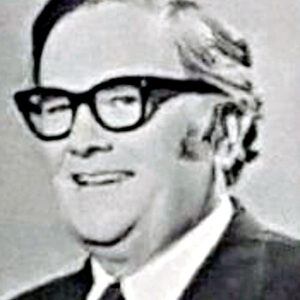 Charlie Staples (1910–1997) was an educationist, historian, and philanthropist, was born on 18 June 1910 at Bunbury, Western Australia. Charlie attended Bunbury Central Primary School, and Bunbury High School (1923–27). In 1928 he began teaching as a monitor at Boyanup before moving the next year to Claremont Teachers’ College, Perth, graduating with a certificate in teaching in 1930. That year he commenced a three-year term at the one-teacher school at Northcliffe. From 1934 until 1942 he taught in a succession of small primary schools in the south of the State.
Charlie Staples (1910–1997) was an educationist, historian, and philanthropist, was born on 18 June 1910 at Bunbury, Western Australia. Charlie attended Bunbury Central Primary School, and Bunbury High School (1923–27). In 1928 he began teaching as a monitor at Boyanup before moving the next year to Claremont Teachers’ College, Perth, graduating with a certificate in teaching in 1930. That year he commenced a three-year term at the one-teacher school at Northcliffe. From 1934 until 1942 he taught in a succession of small primary schools in the south of the State.
Mobilised in the Citizen Military Forces in World War II, he served part time with the Volunteer Defence Corps at Katanning (1942—43) and full time with No. 4 Psychology Testing Section in Perth (1943). From 1938 until 1945 he studied part time at the University of Western Australia (UWA), majoring in history (BA, 1946), then undertaking postgraduate research (MA, 1950). He published his research in journal articles and later in a book, They Made Their Destiny: History of Settlement of the Shire of Harvey 1829–1929 (1979).
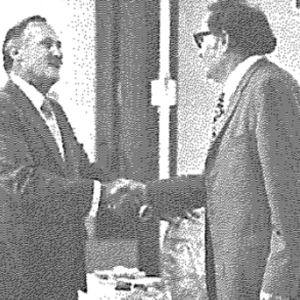 In 1944 Staples taught at Mullewa and then at Perth Modern School before moving to Perth (1946–49) and Leederville (1950–54) technical colleges, where he lectured mostly to ex-servicemen as part of the Commonwealth Reconstruction Training Scheme. Returning to the high school system, he was appointed senior master in social studies at a succession of metropolitan schools, including Kent Street (1957–59) and Applecross (1961–63). He had gained a diploma of education from UWA in 1957. Intent on pursuing history at the tertiary level, he took long service leave (1963) and leave without pay (1963–64) to study at the University of London (MA, 1965). Returning to Perth, he took up an appointment as senior lecturer in social sciences at Graylands Teachers’ College, a position he retained until 1969.
In 1944 Staples taught at Mullewa and then at Perth Modern School before moving to Perth (1946–49) and Leederville (1950–54) technical colleges, where he lectured mostly to ex-servicemen as part of the Commonwealth Reconstruction Training Scheme. Returning to the high school system, he was appointed senior master in social studies at a succession of metropolitan schools, including Kent Street (1957–59) and Applecross (1961–63). He had gained a diploma of education from UWA in 1957. Intent on pursuing history at the tertiary level, he took long service leave (1963) and leave without pay (1963–64) to study at the University of London (MA, 1965). Returning to Perth, he took up an appointment as senior lecturer in social sciences at Graylands Teachers’ College, a position he retained until 1969.
Staples advocated changes to the system of teacher education. Appointed vice-principal of Mount Lawley Teachers College in 1970, with the principal Robert Peter he implemented a system of continuous assessment, brought in a semester system, and introduced student representation on college committees. Having joined the State School Teachers’ Union of Western Australia in 1930, he remained active in its affairs until his retirement in 1974.
Over many years he argued persuasively for the value of historical studies to the wider community. He died on 23 April 1997 in South Perth and was cremated.
Alison Aldridge (Women's Warden)
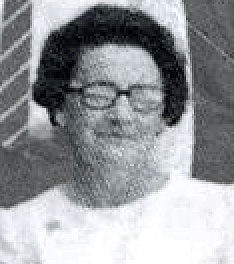
Support Staff
Donald Murtagh (Librarian)
John Pannell (Multimedia & Learning Resource Centre)
William Pervan (Registrar)
Bill Pervan was the registrar for the first ten years of MLTC.
Grace Taylor (Librarian)
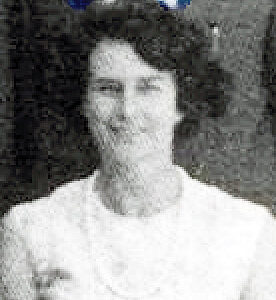 Grace Taylor, later Grace Rigg, was the librarian for the first ten years of MLTC.
Grace Taylor, later Grace Rigg, was the librarian for the first ten years of MLTC.